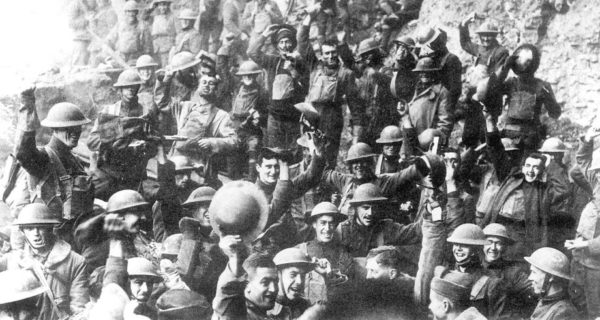In December of 1919, troops were still coming home from the First World War. Some wouldn’t be back for several years. One day, Mom took us to downtown Los Angeles for our annual pilgrimage to the Christmas toy departments of Bullocks, Barker Bros, Broadway, and a host of other stores. It was a treat no modern child can appreciate. There were fantastic window displays with trains running, scores of moving figures of animals and people, along with many motor-driven toys.
Unlike today, there were no signs of Christmas until December, so the excitement generated by the season made a dynamite blast seem mild by comparison. This was a magical time that we kids talked about and planned for all year long. Every desire and need which we encountered throughout the months had been dismissed with the words, “Maybe you’ll get it for Christmas”. Hope was a wonderful balm. Just dreaming about Christmas was more than a little part of the magic. I think we always knew we couldn’t have everything, but it was fun to wonder about what we might get.
Thanks to Mom, our minds were sometimes led to realize what would be best for us and why. None of us wanted the family to go bankrupt. And one must remember, in those days there were no credit cards. It was cash on the barrelhead. The best that could happen was personal credit offered to well-known customers or well-established people in the community. Mother was a believer in credit and she always managed to arrange some with local businesses and banks, for her record of payment was above reproach. However, Dad was more of a conservative—not that he didn’t approve of credit, but he looked upon it as an infringement on his liberty, for it obligated him to people he had no control over.
Now, back then, walking was the most common form of transportation. Try herding a group of Christmas-crazed kids down roads for a couple of miles to get on a “Jitney Bus”. A Jitney was a makeshift bus on a long-bed truck frame. It connected the country folks with the rail lines, and without the Jitney Bus you better have thick soles on your shoes. Once downtown, we kids jostled our way through crowds for a full day, moving from store to store, ogling the decorations and merchandise. Add to this, leaving or losing a child (God only knows where), and you have all the ingredients to produce a harried parent.
About noon, Mom would herd us into the Pig ‘N Whistle restaurant where a meeting had been arranged with Dad. Tired, footsore, and ravenous, we descended on the gleaming dining room with its many delicious aromas. We would order with the help of Dad on one side and Mom on the other. Large slivers of ice in our drinking glasses, along with other extras, were really a treat for us because we rarely ate out.
During lunch we would tell Dad of our adventures and the wonders we had discovered during the morning. Though he was a retired police detective who had served as a bodyguard for three presidents, and now worked for a local newspaper, he took a genuine interest in everything we had to say. One such time, as we left the dining room, I heard a band playing a military tune. Men were marching down Broadway. Everyone seemed excited, but I was lost in a forest of legs. Then Dad came to the rescue and lifted me up so I could see them. Soldiers! Wearing helmets and with rifles on their shoulders, bayonets fixed and flags flying, they seemed to fill the street for miles.
Suddenly even Christmas paled by comparison. Some kids wanted to be cowboys; others wanted to be firemen, policemen, dogcatchers, or president. From that day on, I wanted only to be a soldier.


Glad to see this excerpt from my uncle’s memoirs in print. He would be very happy! I’m working on more of them.